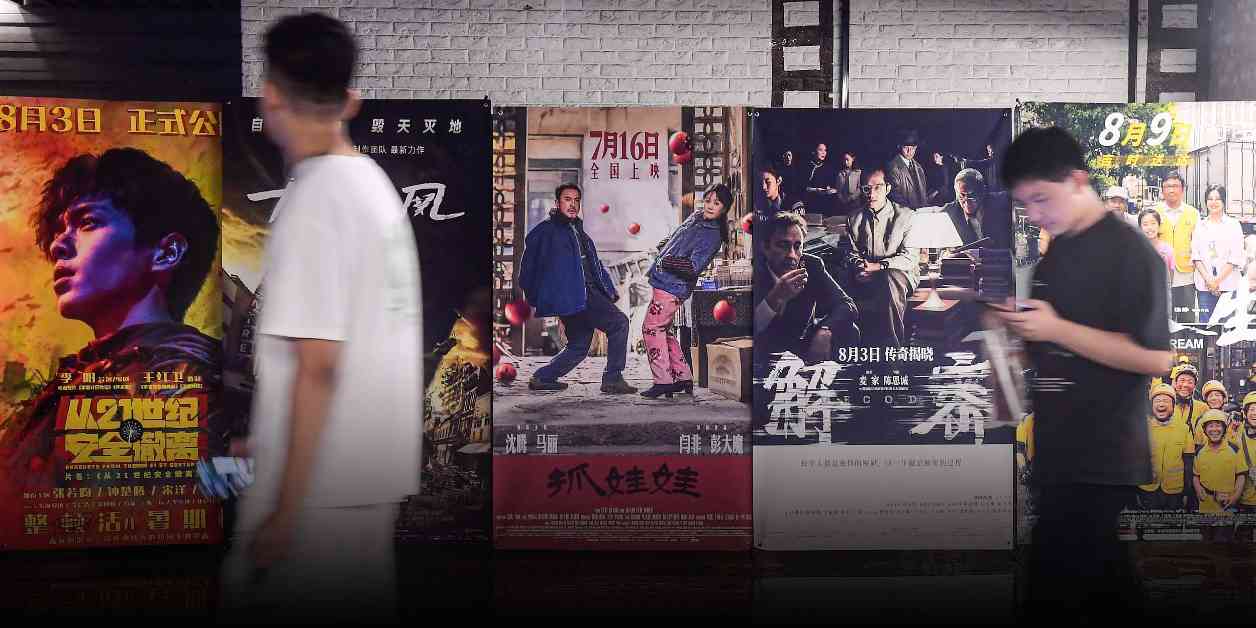China’s film industry is currently facing a significant challenge as box office revenues have experienced a sharp decline during the crucial summer holiday period. This slump has raised concerns about the long-term prospects of the market and has led industry experts to analyze the implications of this downturn.
**Summer Box Office Figures**
With only two weeks remaining in the summer period, Chinese theaters have reported total box office sales of 9.67 billion yuan ($1.35 billion), according to ticketing platform Maoyan. This figure is less than half of the 20.6 billion yuan in box office revenues generated during the same period last year. The weak performance can be attributed to a lackluster lineup of film releases, with the highest-grossing movie of the summer, the comedy “Successor,” only bringing in 3 billion yuan at the box office. Following closely behind is the thriller “A Place Called Silence,” which earned 1.3 billion yuan. However, no other film released this summer has managed to surpass the 600-million-yuan mark.
Comparing these figures to 2023, where eight summer releases grossed over 600 million yuan, with two exceeding 3.5 billion yuan in ticket sales, highlights the significant decline in performance this year. Several anticipated blockbusters that Chinese studios were banking on have also failed to meet expectations. For example, the adaptation of the popular novel “Decoded,” directed by renowned filmmaker Chen Sicheng, has only grossed 300 million yuan since its release 12 days ago. Similarly, Jackie Chan’s latest action film “A Legend” has only brought in 80 million yuan in its first five weeks, despite having a reported production budget of over 360 million yuan.
**Public Response and Industry Analysis**
The disappointing summer box office results have sparked widespread discussion on social media platforms in China. The topic of the “dismal summer box office” trended on the microblogging platform Weibo, garnering over 47 million views. Many users expressed their dissatisfaction with the quality of recent film releases, with some attributing their lack of interest in going to the cinema to the subpar offerings this season.
Sun Yi, a college student in Shanghai, shared his perspective, noting that he had opted not to visit the cinema in recent weeks. While Yi mentioned that his focus had been on watching the Paris Olympics, he also highlighted the lack of buzz surrounding films and the absence of standout releases that would compel him to visit the theaters. This sentiment was echoed by users on the review platform Douban, where many of this summer’s major releases received lukewarm ratings. Films like “Decoded” and “Upstream” received average ratings between 5 and 7 out of 10, indicating a general lack of enthusiasm from audiences.
Industry insiders have also pointed to broader factors impacting the film market beyond the current summer slump. Audiences are increasingly turning to alternative forms of entertainment such as short videos and ultrashort dramas, making it challenging to attract viewers to traditional movie-going experiences. Film critic Tan Fei highlighted this trend, noting that convincing audiences to commit to a two-hour movie in an age of short-form content consumption presents a significant challenge for the industry.
**Long-Term Challenges and Impact of the Pandemic**
Moreover, China’s film industry continues to grapple with the lasting effects of the COVID-19 pandemic. Despite a partial recovery in box office revenues last year, reaching 85% of 2019 levels, sustaining this progress has proven difficult. The current lackluster performance in 2024, following a strong showing during the Spring Festival holiday earlier this year, underscores the ongoing challenges faced by the industry. Total box office revenues for the first half of the year amounted to 23.9 billion yuan, down from 26.3 billion yuan in 2023, according to Maoyan data.
Looking ahead, industry experts and cinema managers are expressing pessimism about the upcoming National Day holiday in October, another critical period for China’s film industry. The uninspiring lineup of releases and weakened consumer sentiment raise concerns about the industry’s ability to attract audiences and generate significant box office revenue during this traditionally busy period.
In conclusion, the current summer box office slump in China’s film industry reflects a combination of short-term challenges, including a weak lineup of releases and lukewarm audience reception, as well as longer-term shifts in consumer preferences and the impact of the pandemic. Addressing these issues will require innovative strategies to engage audiences, adapt to evolving viewing habits, and revitalize interest in cinema experiences. As the industry navigates these challenges, the resilience and creativity of filmmakers and industry stakeholders will be crucial in revitalizing China’s film market and ensuring its long-term sustainability.

















![Indie music fans gather at l’Antipode for [Face B] Kool Things soirée on Saturday night news-15112024-105933](https://shanghainewstv.com/wp-content/uploads/2024/11/news-15112024-105933-324x160.jpg)